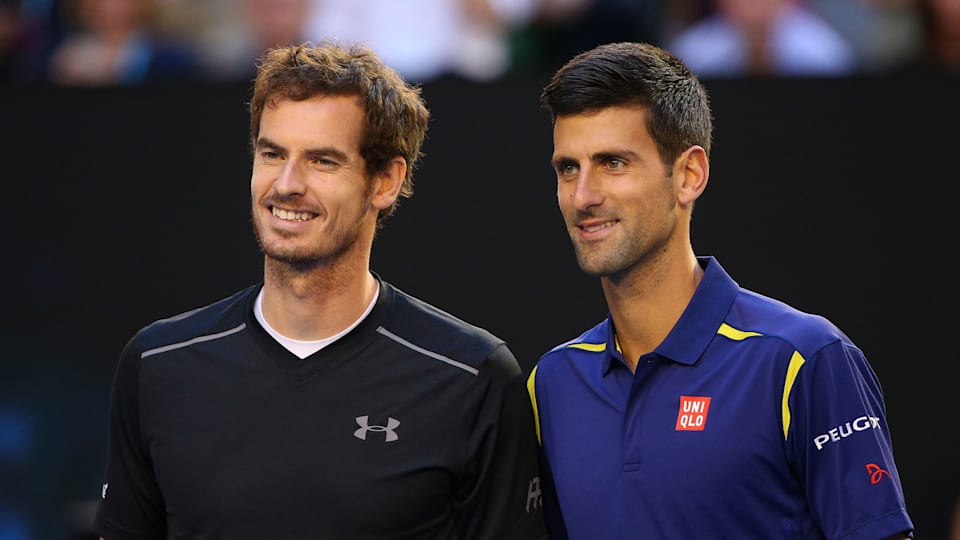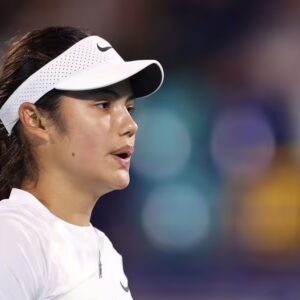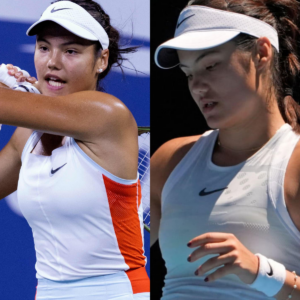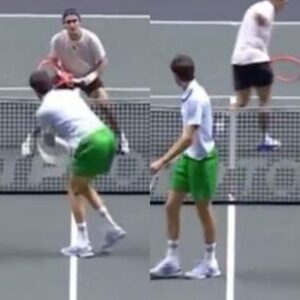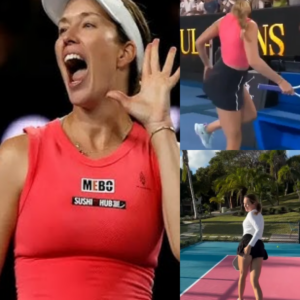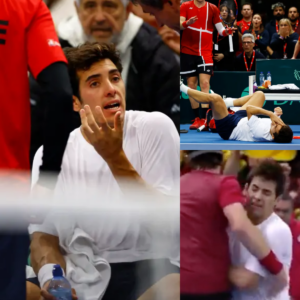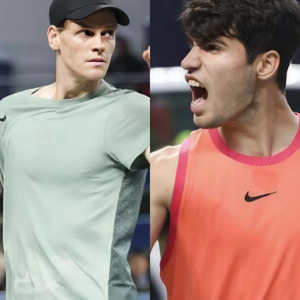In the world of tennis, rivalries and collaborations often intertwine, creating an interesting dynamic. One such example is the unexpected yet fascinating partnership between Novak Djokovic and Andy Murray. Both have been fierce competitors on the ATP tour for over two decades, but recently, Djokovic shared his experience of working with Murray on the same side of the court. The 20-plus years of rivalry have now transformed into a unique opportunity for both players to collaborate and share insights about the game. For Djokovic, the transition from fierce competitors to partners in the sport has been a remarkable shift. As he revealed, for years, the two kept secrets from each other about their preparation, tactics, and mindset, always striving to outsmart one another. Yet, spending time together over a span of eight or nine days allowed them to open up and share valuable information, which they had never exchanged before.

Djokovic expressed how much he valued the chance to work alongside a player of Murray’s caliber, particularly given Murray’s renowned intelligence on the court. The Serbian tennis icon sees these interactions as a valuable opportunity to gain insights that could improve his own game. Djokovic, known for his meticulous approach to tennis, looks to enhance even the smallest elements of his performance, whether it’s improving his court positioning, gaining better control of his game, or finding ways to execute shots with more precision. Every tiny percentage of improvement is crucial at the highest level of tennis, and Djokovic appreciates how even the smallest changes can have a significant impact. It’s this quest for perfection that makes him a formidable force in the sport.
Reflecting on his recent match against Australian qualifier Hijikata, Djokovic gave credit to his opponent for making the contest competitive. Hijikata started strong, particularly in the second set, but Djokovic raised his level of play as the match progressed. His serving, both in singles and doubles, stood out as a significant weapon, allowing him to secure free points and maintain control of the match. He took advantage of the crucial moments and managed to close out the match in style. For Djokovic, this win wasn’t just another victory; it was also a validation of the work he’s put into improving his game, especially his serve, which has become a key aspect of his play.
While Djokovic remains focused on improving his game for the future, he acknowledges the importance of performing well in every tournament, even those in the lead-up to major events like the Australian Open. Djokovic is known for his intense drive, and despite focusing on peaking for the bigger tournaments, he brings a competitive attitude to every match he plays. This season is no different, as he looks to continue fine-tuning his game and be at his best when it matters the most, particularly at the Grand Slams.
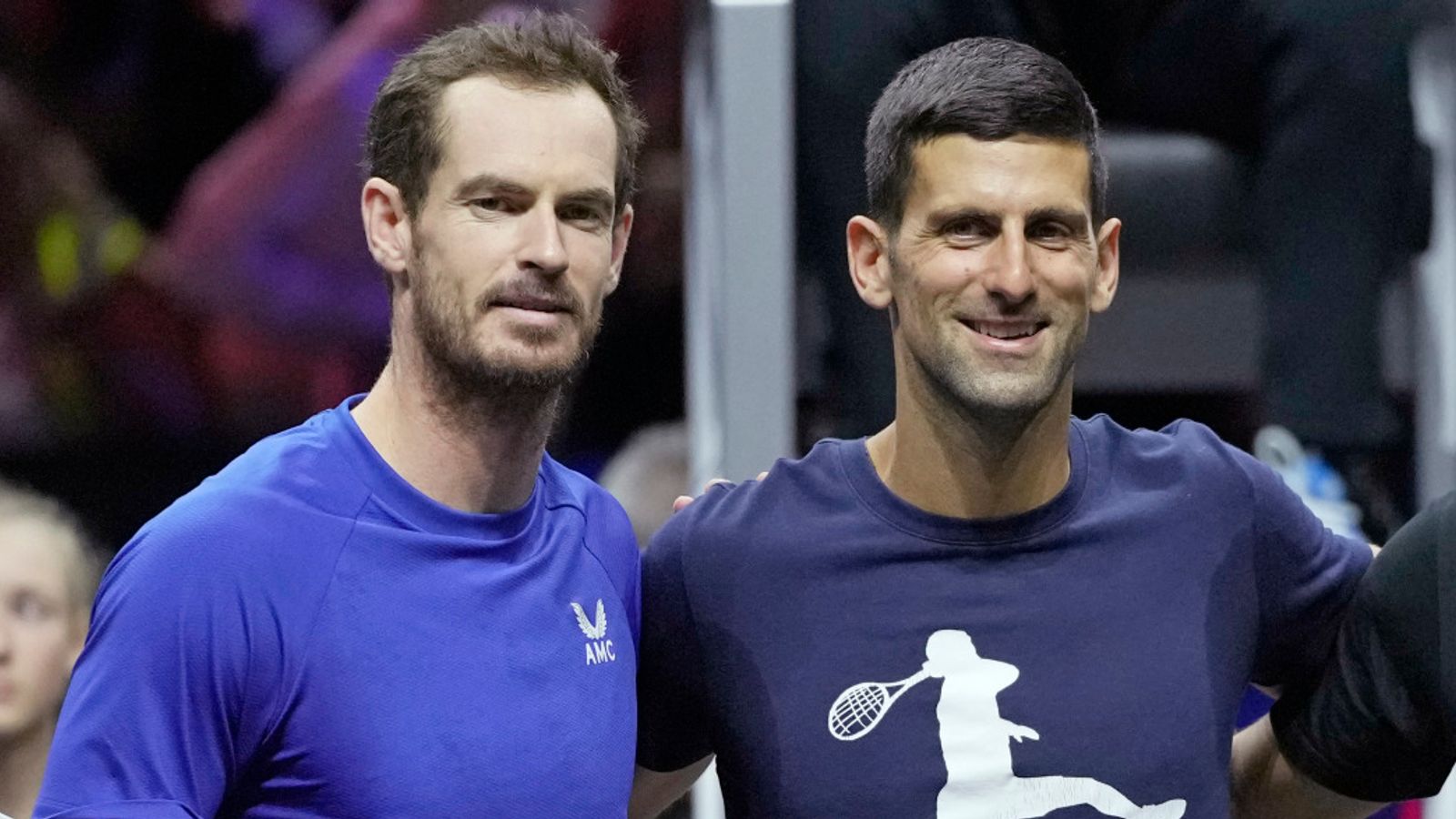
One of the ongoing themes in Djokovic’s approach to tennis is his desire to adapt and evolve in the face of rising younger talent. As the next generation of tennis stars such as Carlos Alcaraz and Jannik Sinner continue to make waves on the ATP Tour, Djokovic is aware that staying on top requires constant adjustment. However, he is not looking to drastically change his game. He believes that the key to success lies in continuous refinement rather than overhauling his playing style. Court positioning, transitioning between offense and defense, and maintaining strong tactical play are the aspects Djokovic is focusing on. Rather than radically changing his game, Djokovic is more concerned with improving the finer details and ensuring that his physical and mental readiness are in sync.
In the coming weeks, Djokovic plans to intensify his preparations, particularly in the lead-up to the Australian Open. As part of his training, he will focus on video analysis of his main competitors, reviewing past performances to assess what worked and what can be improved. Djokovic’s attention to detail is evident in his preparation, where he analyzes his opponents’ strengths and weaknesses, aiming to fine-tune his game to match up against them effectively. However, despite his analytical nature, Djokovic prefers to keep things simple once the tournament begins. He believes in sticking to the basics and not overcomplicating things, but always being ready to address any challenges that might arise during the matches.
Djokovic’s evolution as a player isn’t just about physical adjustments; it also includes refining his mental approach. He recognizes that the mental game is as crucial as the physical one, especially when competing against the younger, emerging talents on the tour. To stay ahead, Djokovic continues to work on his mental resilience, using every match and every practice session as an opportunity to sharpen his focus and improve his game. His willingness to evolve and learn, even after achieving so much success, speaks volumes about his determination and passion for the sport.
In a lighter moment, Djokovic also commented on his upcoming match against his longtime rival, Goran Ivanišević, now working with Kazakhstan’s Elena Rybakina. Djokovic expressed his joy at seeing Ivanišević still involved in the game and spoke highly of Rybakina’s potential, hoping that Goran’s contribution would help her reach even greater heights. The Serbian champion’s comments showed his genuine respect for his fellow professionals and his continued connection to the broader tennis community.
As Djokovic reflects on his career and the future, he remains focused on the road ahead. With a schedule that includes important tournaments like Doha, Indian Wells, and Miami, Djokovic knows that his path to success requires careful planning and balance. He is not just playing for the present but positioning himself for sustained success, ensuring that he peaks at the most important tournaments. Djokovic’s journey continues to be a testament to the importance of hard work, attention to detail, and the relentless pursuit of excellence, all of which have defined his remarkable career.
News
Emma Raducanu accepts Qatar Open wildcard as Brit seeks to end losing streak
Emma Raducanu has accepted a late wildcard to play the Qatar Open in Doha. Emma Raducanu has lost all of her last three matches (Image: Getty) Emma Raducanu has accepted a late wildcard to play next week’s Qatar Masters as she bids…
Emma Raducanu’s schedule unclear after losing three matches in a row
Emma Raducanu’s schedule is up in the air following her Abu Dhabi Open exit. Emma Raducanu’s schedule is uncertain following her Abi Dhabu defeat (Image: Getty) Emma Raducanu’s upcoming WTA Tour schedule remains up in the air. The Brit has lost her last…
Daniil Medvedev involved in very tense moment with rival after body hit
Daniil Medvedev was involved in an uneasy flashpoint at the Rotterdam Open. Daniil Medvedev flashed a stern look at Mattia Bellucci at the end of the point (Image: TENNIS TV) Daniil Medvedev flashed a steely look at Mattia Bellucci after the Italian…
Tennis star Danielle Collins shades critics with latest ‘kiss my a–‘ video in Bahamas
Danielle Collins has made good on her promise to rub Australia’s face in it. The former Australian Open finalist was booed off court after her third round defeat to eventual champion Madison Keys after the Melbourne crowd turned on her. The hot-headed…
Tennis fans stunned after Zizou Bergs tackled Cristian Garin during Davis Cup — and still won: ‘Shocking decision’
The Davis Cup tie between Belgium and Chile descended into chaos after a Belgian player won his match despite shoulder-charging his opponent, who pleaded for the match to be stopped. Belgium edged Chile 3-1 in the first round of Davis…
Carlos Alcaraz concedes to Jannik Sinner as Spaniard makes ‘crazy’ admission
Carlos Alcaraz has made where he stands on Jannik Sinner clear. Carlos Alcaraz has hailed Jannik Sinner. (Image: TENNIS TV) Carlos Alcaraz has conceded that Jannik Sinner is currently on another level than him and every other player on the ATP…
End of content
No more pages to load
